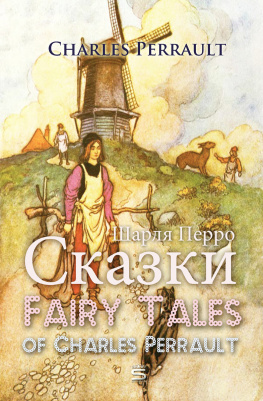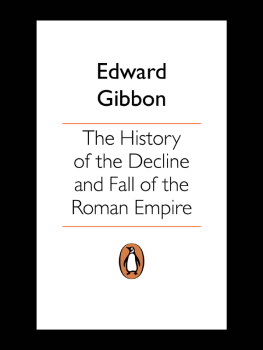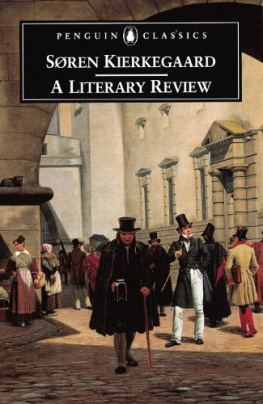CONTENTS
INTRODUCTION
I. GREGORY OF TOURS
The historian who was to become known to the world as Gregory, nineteenth Bishop of Tours, was born on 30 November c.539,
These rather indigestible details are made the more strange for us by the fact that so many of Gregorys relations were canonized by the Catholic Church, as he was to be himself. What I have given is, however, more than sufficient to prove that in his family there was a long and constant tradition of service to the state and to the Church, even more marked perhaps on his mothers side than on his fathers, and directed more often towards ecclesiastical than lay office, but rewarded by high place in both spheres.
Gregory does not mention his father or mother by name in the History of the Franks. He describes in some detail and with much feeling the murder in 574 of his brother Peter, who was a deacon in Langres. although Eustenia herself is not named.
It is inferred that Gregorys father died while he was still a boy. His mother went to live in Burgundy, where she had property, especially near Cavaillon, Vaucluse, and there Gregory visited her. In 573, when Eufronius died, Gregory, who was by then well-known in the city, was elected to replace him as nineteenth Bishop, and King Sigibert approved the election. Gregory held the bishopric of Tours for twenty-one years, from his consecration on 20 August 573 until his death at the age of fifty-five on 17 November 594.
To become a bishop in Merovingian Gaul in the sixth century was to shoulder great responsibility and to wield great power. Once elected, bishops had security of tenure, and most of them occupied their episcopal thrones until the day of their death. It is true that Praetextatus of Rouen was murdered in his own cathedral, They had many properties to administer, numerous servants to govern
each of whom ruled over a province, and one hundred and eighteen suffragan bishops.
As Bishop of Tours Gregory had special responsibilities. He was Metropolitan of Le Mans, Rennes, Angers, Nantes and four other sees. His cathedral had been burnt down in the disastrous fire which ravaged Tours during the episcopate of his predecessor Eufronius, and it took him seventeen years to rebuild it.
Within the limits of a certain area in Gaul Gregory travelled very widely. We find him in Autun, He never had occasion to leave Gaul, and the journey to Coblenz seems to have been the longest which he undertook.
Gregory is supposed to have been a very small man. There is an apocryphal story that he once visited Gregory the Great in Rome, knelt in obeisance before him and, as he rose, saw the Pope eyeing him quizzically, whereupon he is supposed to have said: It is God that hath made us, and not we ourselves.
As one reads the History of the Franks, certain pleasing peculiarities of Gregorys character and personality strike one forcibly. He was proud of his distinguished relatives, but it was for their sake, not his, for he himself was really the most modest of men. As we have seen, he played a big part in the history of his own times, but he rarely refers to himself; and when he does it is in passing and in deprecating terms. In fact, as he unravels for us the bewildering events of these two decades, he seems to go out of his way to understate his own role. His summing up of his manifold activities in Tours between 573 and 591 is typical. He rebuilt the cathedral and re-decorated Saint Martins church, and that he could hardly omit, for it was common knowledge and the very stones cried out for witness. He discovered, identified, blew the dust off and placed in suitable vantage-points various jars full of putrefying relics. Having related at great length the architectural achievements of his predecessors, he then concludes: In many other places in Tours and its immediate neighbourhood I dedicated churches and oratories, and these I enriched with relics of the Saints. It would be too long to give you a complete list. I handed the man back to Bishop Ragnemod and asked that he might be pardoned. Pardoned, you note, not punished. However hateful may have been his times, this was a lovable man.
II. THE TIMES IN WHICH GREGORY LIVED
The History of the Franks is largely a parade of Kings and Queens. As will be explained on p. 24, Gregorys personal narrative probably begins with the assassination of King Sigibert in 575, soon after his own consecration, and it fills Books VX. Until then Gregory had been looking backwards; and if we are to understand the history of his times we shall have at first to do the same.
The Kings of the Merovingian dynasty ruled over Gaul from the early fifth century until 751, although the last hundred years or more of this period was for them a time of ever-increasing decadence and subjection to the Mayors of the Palace, who, as the Carolingians, were eventually to replace them. Chlogio or Clodio, the half-legendary founder of the line, is mentioned briefly by Gregory, as is also Merovech, d. 456, his successor and putative son, after whom the dynasty is named.
Clovis left four sons: Theuderic, the child of a concubine, and Chlodomer, Childebert I and Lothar I, the three surviving sons of Clotild. Their interminable quarrels, their wars in Burgundy, Septimania and Spain, how, with the connivance of Childebert, Lothar murdered the children of Chlodomer, and then destroyed his own rebellious son Chramn, all this is described spasmodically but graphically in Books IIIIV.
Lothar I died in 561. All his brothers had predeceased him. He left four sons, three of them, Charibert, Guntram and Sigibert, the children of Ingund, his second wife, and Chilperic, the only child of his third wife, Aregund. Frankish Gaul, which Lothar, like Clovis, had united under his rule, was now once
Gregory was in his thirty-sixth year when Sigibert was murdered. He had lived through many of the events set out in the last two paragraphs, but he had played no part in them. From 575, or a little before, he began to write with authority and personal knowledge, from his vantage-point as Metropolitan Bishop of Tours.
Chilperic lived for nine more years after the murder of Sigibert. The events of this period are given in considerable detail in Books V and VI. Chilperic had three wives: Audovera, who was confined in a nunnery and later murdered by Fredegund;
The death of Chilperic left Guntram as the sole remaining son of Lothar I. Sigibert had been succeeded by his son Childe-bert II, who was a boy of five, in 575; Chilperic was succeeded by Lothar II, Fredegunds only son, who was four months old when his father was assassinated in 584. Guntram had long before lost all his four sons: his second wife, Marcatrude, murdered Gundobad, his only son by Veneranda, and then lost her own son; and the two children of Austrechild, Lothar and Chlodomer, died of dysentery in 577. From 584 onwards Guntram acted as a more or less benevolent uncle to Childebert II, whom he called his adopted son.
Books VIIX of the History are much more full in their treatment. They cover the years 58491. Forty of the hundred and sixty-eight chapters in these four Books are devoted to Church affairs. Through the other chapters runs a constant spirit of revolt: the challenge to the authority of the Kings made by the great nobles of the state, Gundovald, Eberulf, Mummolus, Guntram Boso, Rauching, Ursio, Berthefried; the constant enmity of the Bretons; the rebellion against Leubovera, second Abbess of Saint Radegunds nunnery in Poitiers, led by Clotild and Basina, both of them princesses of the blood royal. One after another these uprisings were crushed, always with terrible bloodshed and loss of life. Lothar II was still a child. Childebert II gradually grew to manhood, and his relationship with King Guntram centred round the Treaty of Andelot of 587. Behind Childebert II stood his mother, Queen Brunhild, the hated enemy of Queen Fredegund, Chilperics widow.










